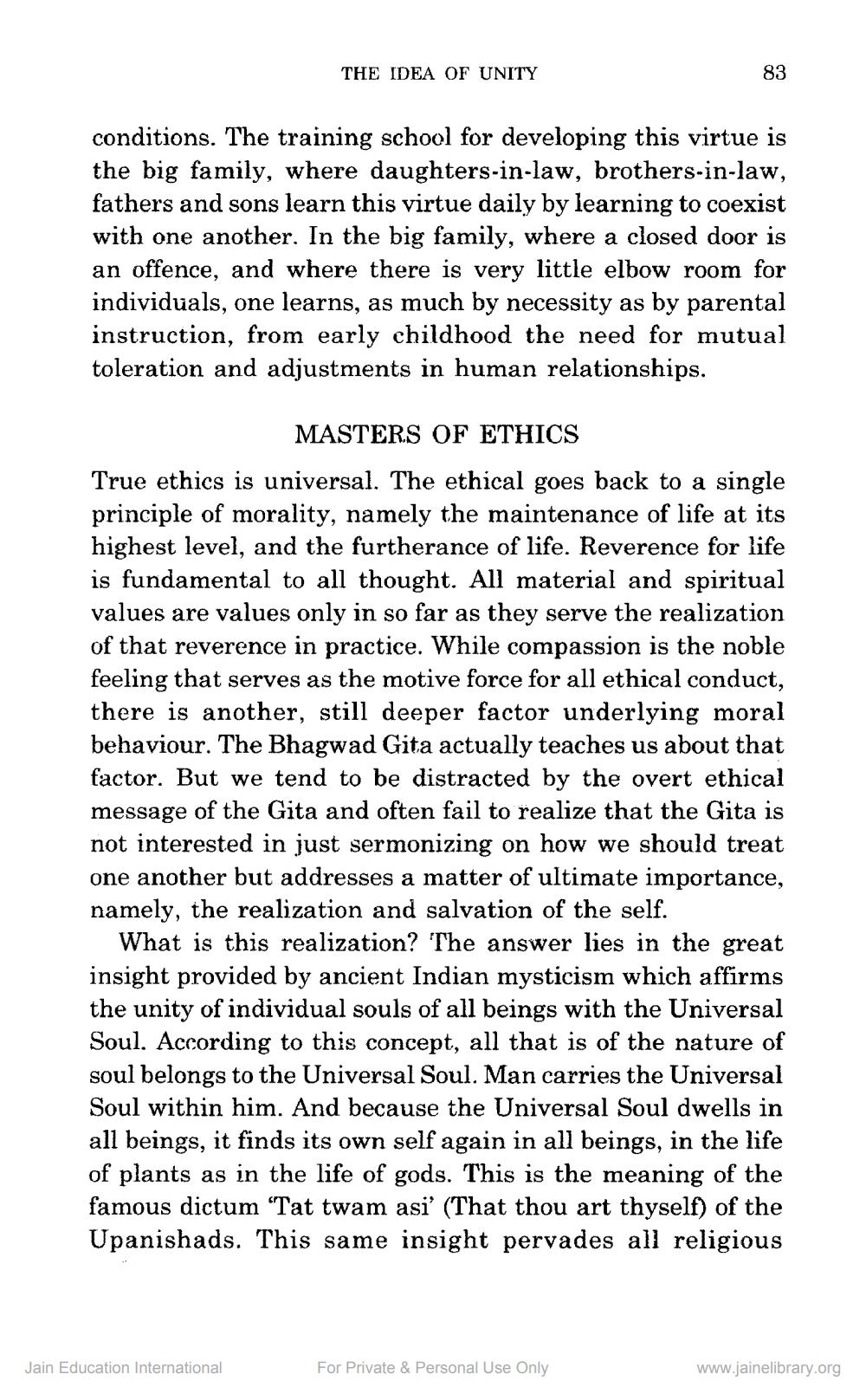________________
THE IDEA OF UNITY
83
conditions. The training school for developing this virtue is the big family, where daughters-in-law, brothers-in-law, fathers and sons learn this virtue daily by learning to coexist with one another. In the big family, where a closed door is an offence, and where there is very little elbow room for individuals, one learns, as much by necessity as by parental instruction, from early childhood the need for mutual toleration and adjustments in human relationships.
MASTERS OF ETHICS True ethics is universal. The ethical goes back to a single principle of morality, namely the maintenance of life at its highest level, and the furtherance of life. Reverence for life is fundamental to all thought. All material and spiritual values are values only in so far as they serve the realization of that reverence in practice. While compassion is the noble feeling that serves as the motive force for all ethical conduct, there is another, still deeper factor underlying moral behaviour. The Bhagwad Gita actually teaches us about that factor. But we tend to be distracted by the overt ethical message of the Gita and often fail to realize that the Gita is not interested in just sermonizing on how we should treat one another but addresses a matter of ultimate importance, namely, the realization and salvation of the self.
What is this realization? The answer lies in the great insight provided by ancient Indian mysticism which affirms the unity of individual souls of all beings with the Universal Soul. According to this concept, all that is of the nature of soul belongs to the Universal Soul. Man carries the Universal Soul within him. And because the Universal Soul dwells in all beings, it finds its own self again in all beings, in the life of plants as in the life of gods. This is the meaning of the famous dictum "Tat twam asi' (That thou art thyself) of the Upanishads. This same insight pervades all religious
Jain Education International
For Private & Personal Use Only
www.jainelibrary.org




